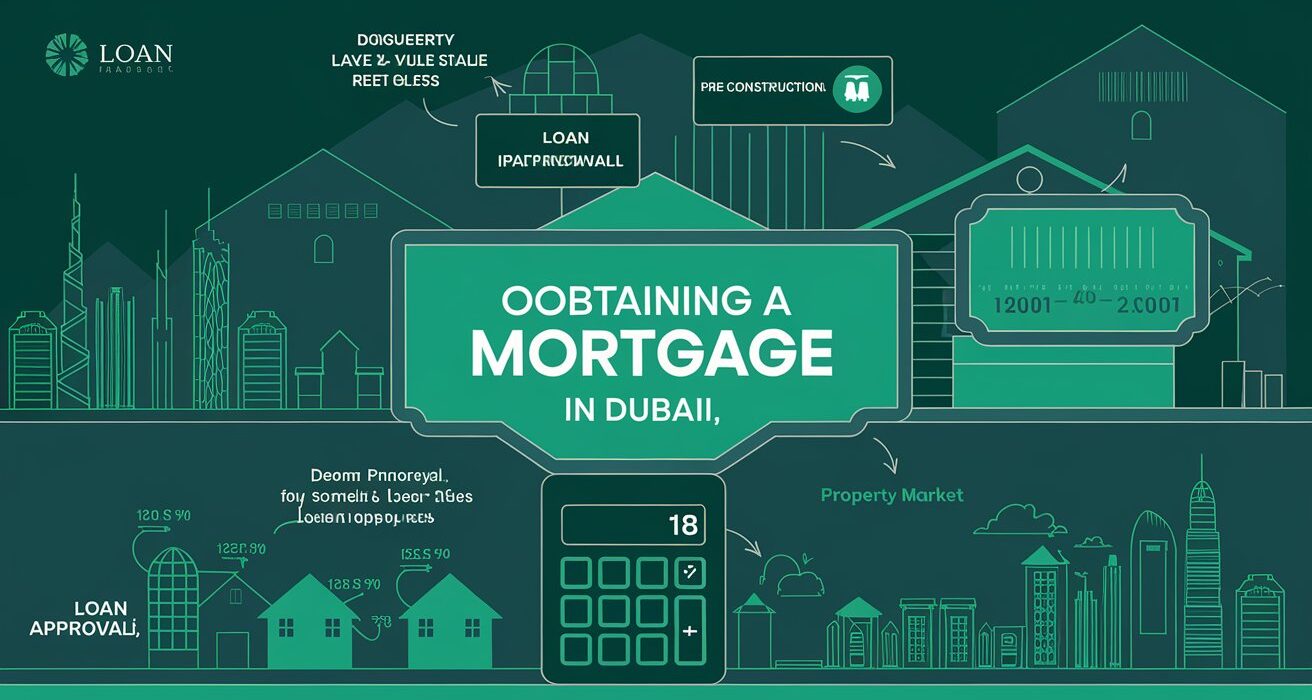What Expats Need to Know About Mortgages in Dubai – A Comprehensive Guide
What Expats Need to Know About Mortgages in Dubai
Introduction: Understanding Mortgages for Expats in Dubai
Dubai is a city that continues to grow as a vibrant, cosmopolitan hub, attracting people from all over the world. Expats looking to purchase property in Dubai often wonder about the mortgage process, eligibility criteria, and financing options available to them. Unlike UAE nationals, expats face different requirements when it comes to securing a mortgage in Dubai. In this guide, we’ll explore everything you need to know about mortgages for expats in Dubai, from eligibility and interest rates to the pre-construction process and financing options.
What Are Mortgages for Expats in Dubai?
A mortgage in Dubai is essentially a loan provided by banks and real estate developers to help individuals finance property purchases. For expats, Dubai offers various mortgage options, which vary in terms of loan amounts, interest rates, and payment plans. Typically, expat mortgages differ from those available to UAE nationals due to factors such as the loan-to-value (LTV) ratio and the size of the down payment.
Unlike many other countries, Dubai offers a broad range of property types, including off-plan properties, which expats can purchase with favorable mortgage terms. However, certain factors must be considered when applying for a mortgage, including financial eligibility, employment status, and the legal regulations governing property purchases by foreigners.
Eligibility for Mortgages in Dubai
Before applying for a mortgage, expats must ensure they meet the eligibility criteria. Here are the key points expats need to be aware of:
- Age Requirements: The applicant should be between 21 and 65 years old at the time of application.
- Employment Status: Expats must have a stable job in Dubai and hold a valid residence visa.
- Down Payment: Expats are typically required to pay a larger down payment than UAE nationals. For properties under AED 5 million, the minimum down payment is usually 20%. For properties exceeding AED 5 million, the down payment is 25%.
- Income Verification: Banks require proof of income through documents like salary certificates or bank statements to assess the applicant’s ability to repay the mortgage.
Types of Mortgages Available for Expats
There are various mortgage types available for expats in Dubai. Understanding the differences between them will help you choose the one that best suits your needs:
- Fixed-Rate Mortgages: With this type of mortgage, the interest rate remains the same throughout the loan term. This offers stability and predictability in monthly repayments.
- Variable-Rate Mortgages: The interest rate changes based on the prevailing market rate, so monthly payments may fluctuate.
- Offset Mortgages: This is a unique mortgage type where your savings account balance is linked to the mortgage loan, reducing the interest burden. These are beneficial if you maintain a high balance in your savings.
Expats can also choose between conventional mortgages and Islamic mortgages, the latter being based on Islamic law (Sharia). These are typically offered by Islamic banks in Dubai.
How Much Can Expats Borrow in Dubai?
The amount that an expat can borrow depends on several factors, such as the loan-to-value (LTV) ratio, which determines the percentage of the property’s value that the bank is willing to lend. Expats in Dubai are generally allowed to borrow up to 80% of the property value for properties valued below AED 5 million. For properties worth more than AED 5 million, the LTV ratio is reduced to 75%.
This means expats need to cover the remaining 20% or 25% as a down payment. It’s important to note that expats are allowed to borrow higher amounts for properties located in specific areas of Dubai, particularly freehold areas where non-residents are allowed to purchase property.
Documents Required for Mortgages
To apply for a mortgage in Dubai, expats must submit several documents to demonstrate their eligibility and financial capability. The required documents typically include:
- Valid Passport and Residence Visa: Proof of your identity and legal status in the UAE.
- Salary Certificate or Employment Contract: This is to prove your income and employment status in Dubai.
- Bank Statements (3-6 months): To show your financial stability and ability to repay the mortgage.
- Credit Report: A credit check will be carried out to assess your creditworthiness.
- Property Details: If you have already selected a property, you will need to provide the property price and floor plans.
Each bank may have specific documentation requirements, so it’s essential to check with your lender.
Mortgage Rates for Expats
Mortgage interest rates in Dubai can vary depending on the type of loan you choose. On average, interest rates range from 3% to 5%, with fixed rates typically being more expensive than variable rates. The loan term can range from 5 to 25 years, depending on the lender and the applicant’s financial situation.
It’s important to shop around and compare different lenders to secure the best possible mortgage rate. Some banks may offer promotional rates or special offers, so expats should consider all available options before committing.
Financing Options for Expats in Dubai
In addition to mortgages, there are other financing options available for expats who may not qualify for a traditional loan. These options include:
- Home Equity Loans: If you already own a property in Dubai, you can use the equity of that property to secure further financing for a new home.
- Refinancing: Some banks offer refinancing options for expats, allowing you to restructure your mortgage and potentially reduce interest rates or extend the loan term.
- Government Schemes: Some government-backed schemes offer favorable mortgage terms for expats looking to buy property in Dubai. For example, the Dubai Land Department has initiatives for affordable housing and low-interest rates on mortgages for expats.
Risk Factors for Expats
While mortgages in Dubai are generally considered safe, expats should be aware of certain risk factors associated with taking out a loan:
- Market Value Fluctuations: Property values in Dubai can fluctuate, which may affect the capital appreciation of your investment. It’s important to research the market and understand potential risks.
- Interest Rate Increases: With variable-rate mortgages, there is a risk that interest rates may rise over time, increasing your monthly payments.
- Legal Restrictions: Expats can only purchase property in designated freehold zones, so understanding the masterplan of Dubai is crucial to ensure you are investing in an area that allows foreign ownership.
The Mortgage Process for Expats in Dubai
The process of securing a mortgage for expats in Dubai typically follows these steps:
- Pre-Approval: Before you start house hunting, get pre-approval from your bank to understand how much you can borrow.
- Find a Property: Choose a property based on your budget and needs. You may want to consult with real estate agents or developers for assistance.
- Submit Documents: Once you’ve selected a property, submit the necessary documents to your bank for verification.
- Approval & Offer: If the bank approves your application, you will receive a formal offer outlining the mortgage terms.
- Sign Agreement: Once the offer is accepted, sign the mortgage agreement.
- Property Handover: After all payments are made, the property handover process begins, and you officially own your new home.
FAQs
Q1: Can expats get a mortgage in Dubai? Yes, expats are eligible for mortgages in Dubai, but they must meet specific criteria such as having a valid residence visa and making a larger down payment.
Q2: What is the best mortgage for expats in Dubai? The best mortgage depends on the individual’s financial situation. Expats can choose from fixed-rate mortgages, variable-rate mortgages, or Islamic mortgages.
Conclusion
For expats looking to buy property in Dubai, understanding the mortgage process is essential. With the right information about eligibility, interest rates, and financing options, you can make informed decisions about securing your dream home. While the process may seem complex, understanding the key steps and requirements will help you navigate the market smoothly. Whether you’re looking for a property in the real estate market or exploring off-plan developments, Dubai’s mortgage offerings can provide expats with the opportunity to invest in this dynamic city.


